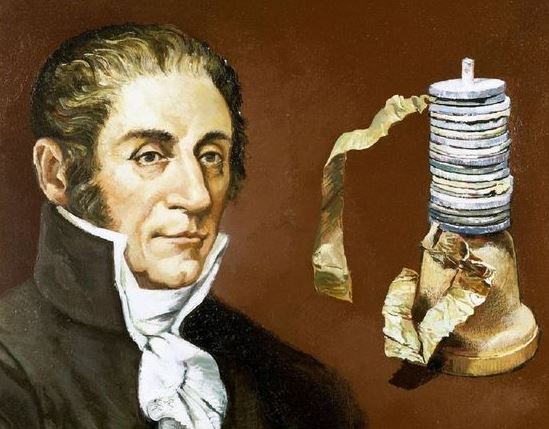Alessandro Volta (1745–1827) was an Italian physicist renowned for his pioneering work in the field of electricity. His innovations laid the foundation for modern electrical science and technology. Volta’s most significant contribution was the invention of the voltaic pile, which was the first chemical battery and provided a continuous source of electrical current.
Early Life and Education
Born in Como, Italy, on February 18, 1745, Alessandro Volta was educated at the Jesuit school in Como and later studied at the University of Pavia. His early work focused on the study of gases and atmospheric pressure, which provided a strong foundation for his future experiments in electrical science.
Key Contributions
- Invention of the Voltaic Pile: In 1800, Volta developed the voltaic pile, the first true battery capable of producing a steady and continuous electric current. The voltaic pile consisted of alternating discs of zinc and copper separated by layers of cardboard soaked in saltwater. This invention marked the beginning of the era of electrochemistry and revolutionized the study of electricity.
- Electrochemical Series: Volta’s work led to the development of the electrochemical series, a list that ranks metals and other elements based on their ability to donate or accept electrons. This series is fundamental to understanding chemical reactions and electrical potentials.
- Voltaic Effect: The term “voltaic effect” refers to the electrical effect produced by the voltaic pile, which demonstrated that a chemical reaction could generate electricity. This was a significant breakthrough, proving that electricity could be generated through chemical means rather than static electricity alone.
- Volta’s Law: Volta formulated principles that are now part of the study of electrical circuits. His work established that the voltage produced by a battery is proportional to the number of cells (discs) in the battery and the nature of the chemical reactions occurring within.
Legacy and Impact
- Scientific Impact: Alessandro Volta’s discoveries paved the way for future developments in electrical engineering and physics. His work influenced subsequent scientists, including Michael Faraday and Humphry Davy, who built upon his findings to advance the field of electromagnetism.
- The Unit of Electric Potential: In honor of his contributions, the unit of electric potential, the volt, was named after him. The volt is a fundamental unit in the International System of Units (SI), reflecting the significance of his work in electrical science.
- Educational Contributions: Volta also served as a professor of physics at the University of Pavia, where he educated and inspired many students who would later contribute to the field of science.
- Recognition and Honors: Volta received numerous honors throughout his life, including being appointed a count by Napoleon Bonaparte and receiving awards from scientific societies across Europe.
Alessandro Volta’s pioneering work in electricity and electrochemistry laid the groundwork for modern electrical science. His invention of the voltaic pile and contributions to understanding electrical phenomena marked a new era in scientific exploration and technological development. Volta’s legacy continues through the volt, a unit named in his honor, and his profound influence on the field of electrical engineering.




